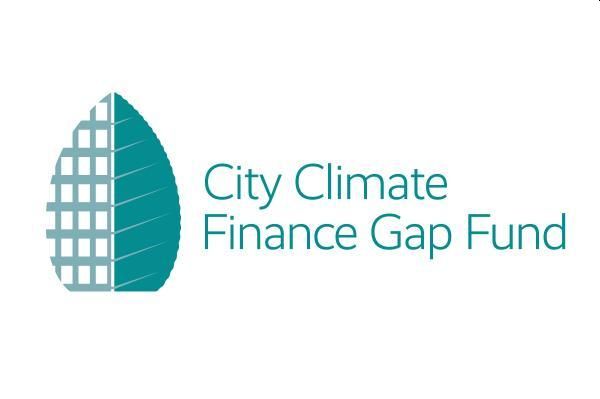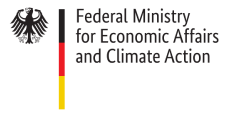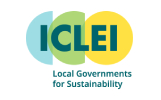City Climate Finance Gap Fund completes first year of operation with support to 33 cities

Washington/ Luxembourg, 23 September 2021 -- The City Climate Finance Gap Fund (the Gap Fund) has approved technical assistance for 33 cities since its operational launch in September 2020, filling a critical gap in technical assistance funding to help cities turn their climate ambitions into finance-ready projects.
Marking its one-year operational launch anniversary today, the Gap Fund has received more than 140 expressions of interests and approved technical assistance for 33 cities in India, Mexico, Ethiopia, Morocco, Democratic Republic of Congo, Panama, Senegal, Vietnam, Kosovo, Montenegro, Ecuador, South Africa, Vanuatu, Colombia, Indonesia, Brazil, Guatemala, Uganda and Ukraine. An additional 30 cities are currently undergoing a detailed assessment for potential Gap Fund support, with a total target of at least 180 cities.
The Gap Fund is currently capitalised at €55 million, with a target of at least €100 million and the potential to unlock an estimated €4 billion in investments. The aim is to help cities understand their exposure to climate challenges, develop plans and strategies to reduce emissions and vulnerability to climate risks, and identify and prioritise climate-smart urban infrastructure investments.
The Gap Fund demonstrates a unique collaborative model -- with funding from Germany and Luxembourg, it is co-implemented by the World Bank and the European Investment Bank in partnership with the Deutsche Gesellschaft für Internationale Zusammenarbeit and works directly with city groups and networks including GCOM, ICLEI, C40 and CCFLA. This concerted effort has helped raise awareness about the importance of cities and urban systems in the climate agenda and could not come at a more critical time, as the latest Intergovernmental Panel on Climate Change (IPCC) report confirms that cities are the hotspots of global warming, with the global urban climate finance gap estimated in the trillions of dollars, especially in South Asia and Sub-Saharan Africa1.
The Gap Fund also contributes cutting-edge knowledge, tools and recommendations. For example, by featuring in the State of Cities Climate Finance Report Part 2: Enabling Conditions for Mobilizing Urban Climate Finance , which provides critical systems-level conceptual frameworks and recommendations for city, country and climate decision-makers. The Gap Fund has also developed or packaged user-friendly practical tools and notes for operational practitioners and project developers on the ground.
Some of the Gap Fund’s most recent grant activities include:
- San Miguelito, Panama: Identify climate-smart and energy-efficient urban interventions for new cable car infrastructure, with the potential to cut emissions and reduce vulnerability to floods.
- Dakar, Senegal: Integrate low-carbon and climate-resilient considerations into the planning, development and construction of affordable and green housing in the greater Dakar region, including piloting a green building certification incentive for building developers.
- Mangalore and Kolar, India: Prepare a climate diagnostic report for solid waste management as well as an action plan for improving and financing low-carbon solid waste management services, including a pre-feasibility study.
- Bogota, Colombia: Provide technical assistance for greenhouse gas and air quality analytics, city-wide coordination and recommendations to incorporate low-carbon and climate-resilient considerations in the Low-Carbon Vital Neighbourhoods in Bogota– the first pilot in Latin America to implement a “Proximity City Urban Development Model” (also known as the 15-minute city model).
- Chefchaouen, Morocco: Prepare a study on low-carbon solid waste management activities including waste sorting, biogas recovery, leachate treatment and the use of solar energy.
- Vinnytsia, Ukraine: Support climate change adaptation measures along the Southern Bug River, such as new green spaces along the embankments, development of beaches to improve river transport and the construction of a new bridge to improve walking routes north and south of the city.
- Campinas, Sao Paolo State, Brazil: Promote climate change adaptation and reduce flood risks through nature-based solutions along the Capivari river.
- Danané, Côte d’Ivoire: Support the deployment of a fleet of 600 low-carbon, low-cost solar tricycle taxis to meet the city’s most pressing mobility needs for people, including expectant mothers, and cargo.
- Escuintla, San José and Iztapa, Guatemala: Assess the quality of existing waste generation and characterisation data of municipal solid waste and make any necessary additions, compare organic solid waste treatment alternatives and suggest improvements to the existing organisational structure and governance.
- Santa Marta, Colombia: Improve and enhance the city’s urban forest and forest management, and identify funding opportunities at regional, national or international level as well as links to other potential natural infrastructure projects along Santa Marta’s ecological corridors.
- Rio de Janeiro, Brazil: Improve hydrological modelling to assess urban flood risks and economic modelling to assess the viability of restoring wetlands as a natural barrier in flood-prone areas and carry out stakeholder consultations.
- Makindye Ssabagabo, Uganda: Study existing waste generation, carry out a characterisation study of municipal solid waste using random and seasonal data, and compare organic solid waste treatment alternatives.
- Palembang, Musi Rawas and Lubuklinggau cities, Indonesia: Prepare a cost-benefit analysis, strategy and action plan for green, resilient construction and energy-efficient affordable housing in these three cities. Project would help inform the national Government One Million Housing program which aims to provide incentives for developers to build 220,000 homes per annum and to upgrade 160,000 affordable homes.
Sameh Wahba, Global Director for the World Bank's Urban, Disaster Risk Management, Resilience and Land Global Practice stated: “The evidence just keeps mounting to show that cities are on the frontlines of the global climate agenda. And now, we have an opportunity to take concerted, lasting action to support cities with their plans to make climate-smart investments and choices that can result in a sustainable and healthy future for generations to come. The Gap Fund works in this crucial space and we look forward to supporting more cities with their climate ambition in coming years.”
EIB Vice-President Ambroise Fayolle commented: “Cities must implement ambitious climate projects to adapt to the impacts of climate change, reduce their emissions and improve the quality of life for their residents. One of the key barriers to get bankable projects off the ground is in the early preparation stages. That’s where the Gap Fund helps and supports developers with the assistance they need. As the EU Climate Bank, the Gap Fund is one of our flagship initiatives that shows how, together with our partners, we can make a real difference for local communities around the world. I congratulate all cities and partners who helped setting up the fund and made its first year a success.”
“As cities rebuild from a devastating pandemic and the impacts of climate change, there are smart investments they can make right away – if they have the right support,” said Michael R. Bloomberg, UN Secretary-General’s Special Envoy for Climate Ambition and Solutions, Founder of Bloomberg LP and Bloomberg Philanthropies, and Co-Chair of the Global Covenant of Mayors. “The Gap Fund is a vital resource for cities, as they implement projects that fight the climate crisis while creating jobs and building healthier and more equitable communities.”
The City Climate Finance Gap Fund is supported by Germany’s International Climate Initiative (IKI) of the Federal Ministry for the Environment, Nature Conservation and Nuclear Safety (BMU), the Federal Ministry for Economic Cooperation and Development (BMZ), as well as Luxembourg’s Ministry of the Environment, Climate and Sustainable Development. Other partners include the Global Covenant of Mayors (GCoM) and city networks including Local Governments for Sustainability (ICLEI), C40 Cities and the Cities Climate Finance Leadership Alliance. The Gap Fund is implemented by both the World Bank, and the European Investment Bank (EIB) in partnership with the Deutsche Gesellschaft für Internationale Zusammenarbeit (GIZ).
The World Bank Group is a unique global partnership with 189 member countries, staff from more than 170 countries, and offices in over 130 locations: five institutions working for sustainable solutions that reduce poverty and build shared prosperity in developing countries. The World Bank Group is committed to tackling climate change. The World Bank Group Climate Change Action Plan (CCAP) aims to deliver record levels of climate finance to developing countries, reduce emissions, strengthen adaptation, and align financial flows with the goals of the Paris Agreement. In the plan, cities and urban systems are a key focus area – on a par with energy, transport, food & forests and industry.
The EIB Group has recently adopted its Climate Bank Roadmap to deliver on its ambitious agenda to support €1 trillion of climate action and environmental sustainability investments in the decade to 2030 and to deliver more than 50% of EIB finance for climate action and environmental sustainability by 2025.
Also, as part of the Roadmap, from the start of 2021, all new EIB Group operations have been aligned with the goals and principles of the Paris Agreement.








